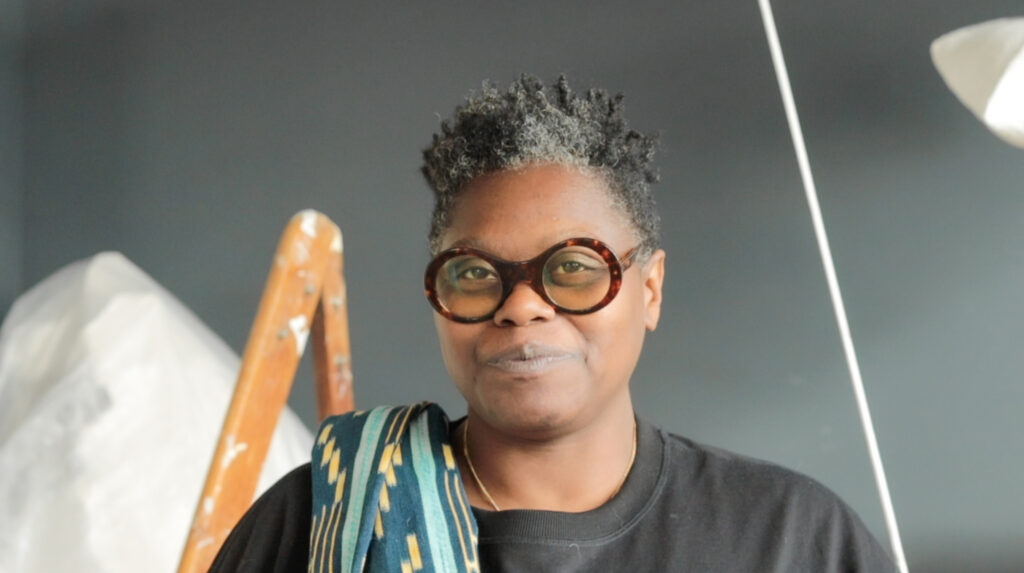She’s one of the guest judges of the first episode of Drag Race Belgique this week! Rokia Bamba has made a long way since launching one of the first radio shows about hip-hop in the 90s. She’s been DJing ever since and has been mixing groovy hip-hop, African rhythms, house, and techno at socially engaged parties and many festivals (Massimadi, Pink Screens, Afropunk, Festival des Libertés…) and even at Ancienne Belgique and le Botanique. She recently had the opportunity to get a “Carte Blanche” at Théâtre 140. You can also discover her podcast “Sororités, conversations with my sistas” by Studio Balado.
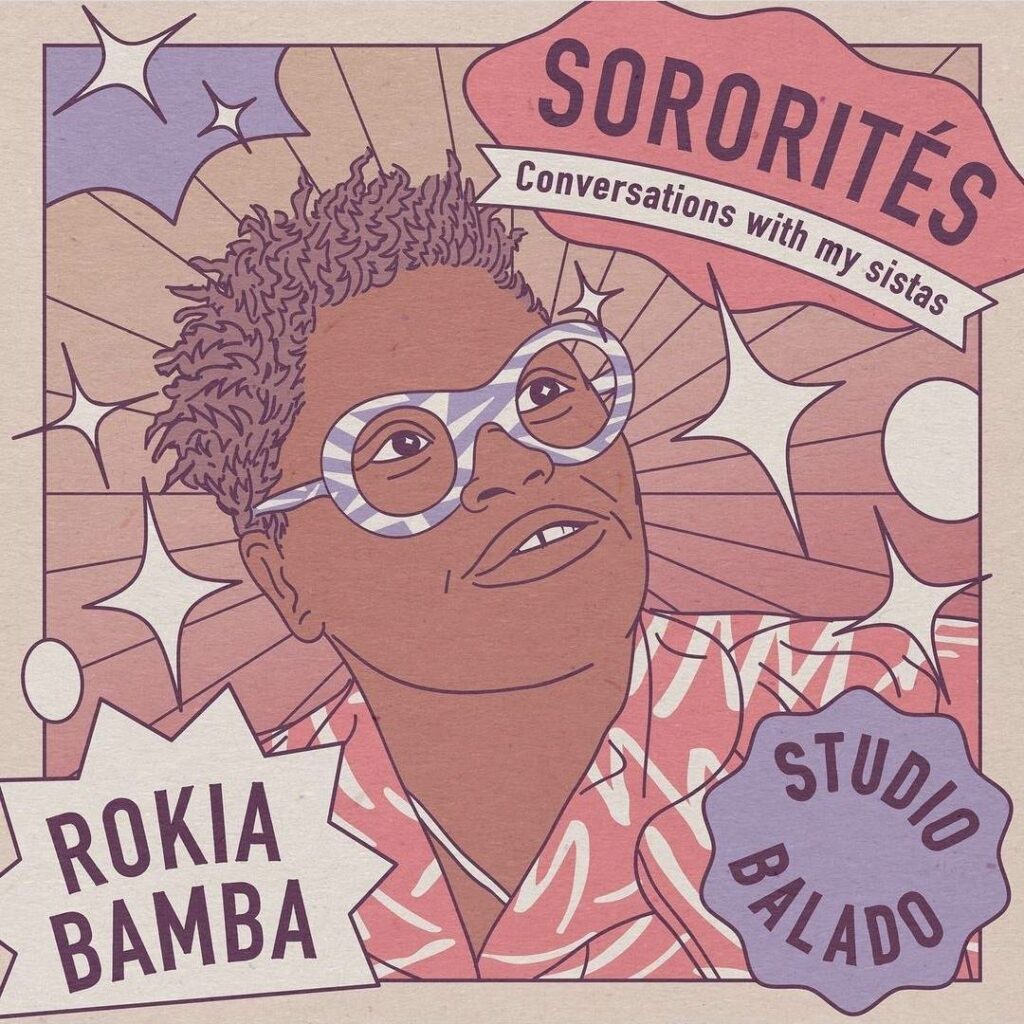
“By launching myself in DJ-ing, I immediately chose to put my talent at the service of Afro-feminist, anti-racist, LGBTQI groups and collectives. I am a black woman, a mother, an artist, an activist and I define myself as an ARTIVIST. I can’t separate my political commitments from my artistic practice. The Brussels queer community, it’s not a community but communities in the plural. They also are my families. Without them I am nothing, I don’t breathe anymore.”
« The Brussels queer initiatives I am fond of are all the initiatives that open doors to the possible, all the initiatives that do not compartmentalize, that help us to find comfort, to care for each other by not snapping at each other! All initiatives that bring people together and do not divide them! That respect and do not kill. All the initiatives that allow us to raise our heads, to feel proud of ourselves and of others. All the initiatives that allow us to say loud and clear that we are here and that we are not going to go home because this is also our home. We will not move! All these initiatives that allow us to say to ourselves that if one of us is not free, then none of us will be free! »
« I was born in Brussels in 1976. I was one of the first Belgian voices to speak, broadcast, and comment on Hip-Hop music on the airwaves of free radio stations in Brussels. As a child, alongside a music-loving father, I became passionate about music. I quickly immersed myself in the musical diversity of the African continent and beyond, shaping my taste for the eclecticism of black music: from the Maloya of Reunion Island to the techno of Detroit and Chicago, via the post-disco of ESG, the kuduro of Kapiro, the rumba of Soumaro and the South African Gospel. My spectrum of musical influences is wide. »
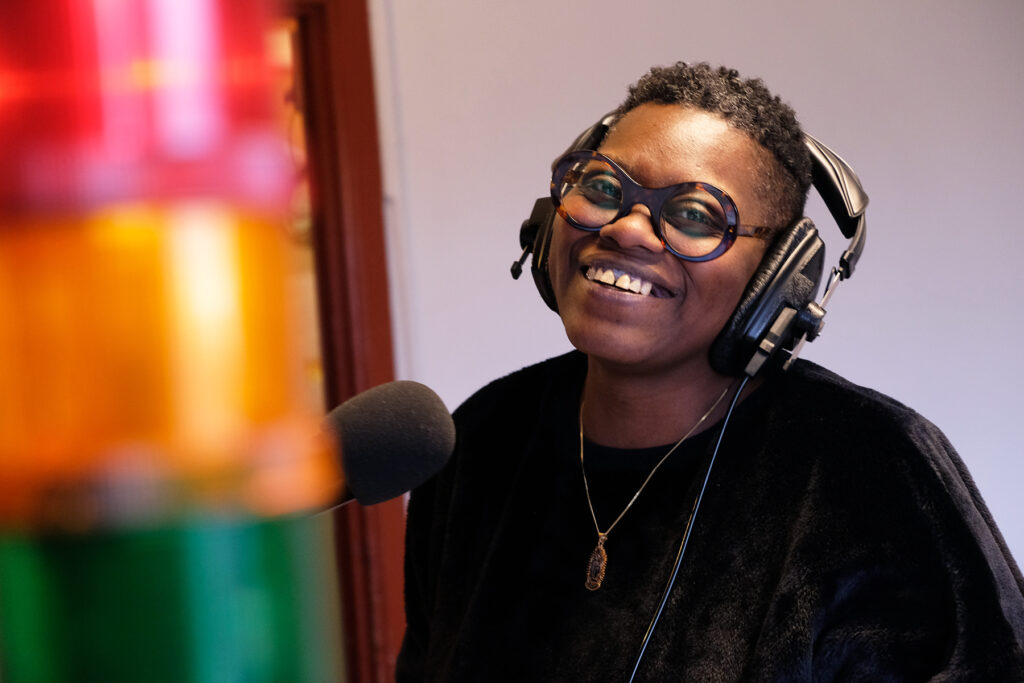
« Since its first edition in 2013, Massimadi festival has established itself as an essential part of the black LGBTQI+ spaces in Brussels, hardly doubting its mission to make people visible at the crossroads of queer and black communities, whose experiences are rich and are unique, and whose identities are multiple and intertwined (African, European, multilingual). »
« The queer community it’s also my sistaaa that are numerous and brothaa that are numerous. I feel existing and useful in their presence, understood and heard, not judged. I can be and do, it’s Gia Abbrassart and her store in the Marolles, it’s Joelle Sambi with her words that are like uppercuts in my mouth, it’s Lisette and Julie Lombé, prodigious slammers, it’s Studio Balado and Michel-Ange Vinti who allows me to create a platform where I can talk about sisterhood without being muzzled, it’s … »
You may also like
-

Laugh, Love, and Friendship: Atout Comedy Club Brings Queer Joy to Brussels
Forget Valentine’s Day clichés—this year, Brussels’ queer comedy scene is celebrating friendship instead of romance. On Friday, February
-
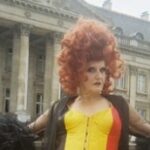
Motherland: A Chaotic Cabaret That Mirrors Belgium Itself
What if Belgium were a drag show?That’s the question at the heart of Mère Patrie, a
-

Adriano Selva: The Soulful Pop Dreamer Who Feels It All
In a world that often rewards detachment, Adriano Selva chooses to stand beautifully exposed. His
-
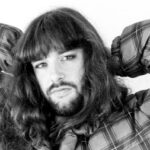
Splinters of Joy: Lylybeth Merle’s Eco‑Queer Fairy Tale of Transition and Healing
Lylybeth Merle’s new book Échardes (“Splinters”), out in February 2026, is a tender, defiant journey through gender,
-

Bad Bunny Makes Grammys History — and Turns the Stage Into a Political Movement
It was a night that rewrote the rules of pop culture — in Spanish. At

